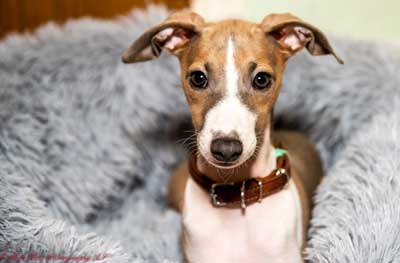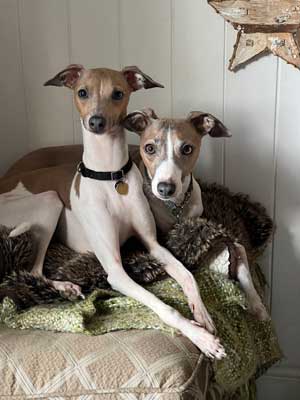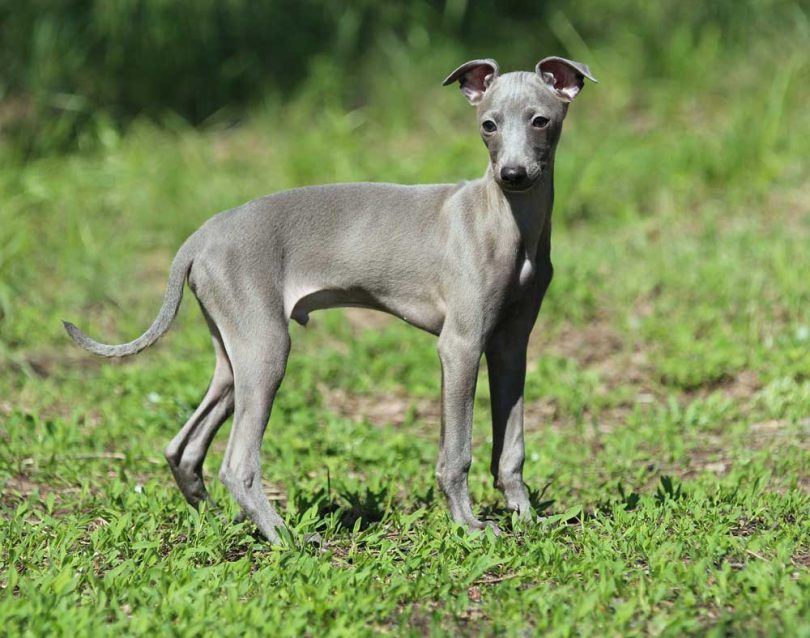How important is the name you give your dog?
Breeders are often having to become more and more imaginative in naming their KC registered litters, and often these names don’t lend themselves easily to a pet name for the dog – you have to choose your dog’s name. Often, choosing a pet name for your dog is one of the most difficult decisions when committing to a new four-legged family member. I’ve lost count of the posts I’ve seen on Facebook asking for inspiration and ideas. I think we are very lucky when the ideal pet name easily springs to mind, or we take on a dog with a name already chosen for them. Or are we?

Does choosing a pet name for your dog come with a burden of responsibility that perhaps we are not always mindful of?
5 considerations to take:
1. Always envisage standing at the backdoor or at the local park, shouting your dog’s name, very loudly!
Whilst a name like Bullwinkle or Jellybean might give you a chuckle at home, it tends to lead to a sense of humour failure when they are disappearing into the distance in pursuit of a squirrel or rabbit, you’re bellowing your head off at them and everyone is turning to see who the mad person is!
When I was a small child, my parents got me a jet-black kitten from the RSPCA, which I duly named Gobbolino, from the children’s story book Gobbolino the Witches Cat. Naturally, this became shortened to “Gobby”, and we almost never called him Gobbolino at home. All innocent childish fun, until my parents found themselves yelling “Gobby!” up the garden when he needed to come in for some reason.
Something to remember to think ahead to!
2. In reality, how likely are you to use their funky full pet name?
Lots of dogs end up with nicknames we use at home, almost never using their formal name (unless they are caught doing something they shouldn’t!) One time you are going to use their formal name is in training. At that point Lord Ponsonby Farquhar might not be so appealing.
3. Will your dog recognise their own name in a multi-pet/person family?

A lot of people like to give their dogs rhyming names, but how does this work out for the dogs, in reality? In a household with two dogs named Benny and Denny, how does each dog differentiate their name from the other? It probably doesn’t matter much, until you shout to stop Denny as he’s climbing on the meal table, and Benny is left confused as to what he’s done wrong. This devalues the command as it becomes confusing and therefore irrelevant to both dogs. It’s much clearer to have two names that are easily differentiated, especially at crucial safety moments, and when training within a multi-dog household.
4. Consider the possibility of the name rhyming with a command
This might seem slightly absurd, but it’s a genuine consideration for basic day-to-day life with your dog. As with rhyming pet names, if a name rhymes with a command it can lead to unnecessary confusion. Bae, May, Ray, and Trey all rhyme with “Stay!”. Beau rhymes with “No!”. A real-life example of this is a dog whose name is Nolan – or “NO, Lan!”. Not ideal for a quick understanding and response to an urgent command!
5. When you choose your dog’s name, rethink using human names!
A friend told me, “I took on an adult whippet called Jimmy and have a couple of friends where the man is called Jimmy. You can just see how the poor chap would leap in the air with shock if I shouted admonishingly at the dog, who was always stealing food from the table, and the “real Jimmy” was having lunch with us! It could give him a heart attack! So, I renamed the dog Timmi, a subtle difference the dog never noticed!”

What does make a good name for a dog?
Many years ago, my family took on a puppy from a litter that had been bred for the RAF as tracker dogs. The breeder offered the following, incredibly simple advice:
Choose a name your dog will easily recognise when you whisper it.
What does that mean?
a) A name with two syllables. Not one, not three or more, just two. It makes it easier for your dog to differentiate their name from other words, especially when whispered.
b) A name that contains a “k”, “ch”, “sss” “x”, “z” or “sh” sounding noise.
c) A name that ends in a vowel.
Try whispering “Sacha”, “Asa”, “Jessie”, “Suki”, Inca”, “Kobe”, “Kiki”.
You can see what they mean!
We applied this logic when naming my Italian Greyhound, Chico, and my mother’s Italian Greyhound, Pasha. It works very well, and each dog is clearly attached to their name, which works wonders when training together and giving instruction to each, but not always when I catch them doing something they shouldn’t, at which point they become “Pa-Chico” and “Chi-Pasha”!
I don’t know if this advice makes choosing a pet name easier or harder, but it’s certainly food for thought!
© Kelly Wallace Horne, Italian Greyhound Active Health Project, The Italian Greyhound Club 2023. Unauthorised use and/or duplication of this material without express and written permission from this site’s author and/or owner is strictly prohibited. Excerpts and links may be used, provided that full and clear credit is given to Kelly Wallace Horne, The Italian Greyhound Club, and www.italiangreyhoundactivehealth.org.uk with appropriate and specific direction to the original content.









